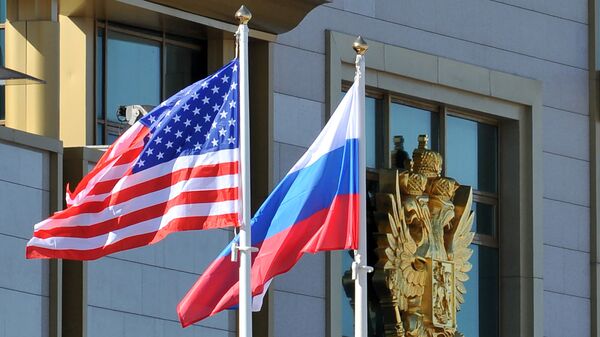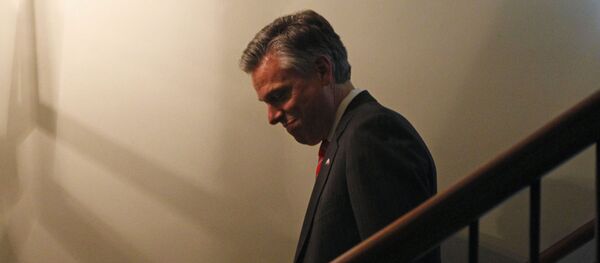"That’s a shame. You don’t help anything by not talking and not having any discussions," Weldon said on the sidelines of the fourth annual "Doing Business With the Eurasian Economic Union Conference" in Washington, DC. "A lot of this is being driven by the press."
The former US Congressman stressed that restoring relations between the Russian and US lawmakers is necessary.
Weldon emphasized that the relationship between the United States and Russia currently is far worse than it was when he was elected to the US Congress in 1987 from the US state of Pennsylvania.
"The American and Russian people have far more in common than they disagree on. The question today is: How do we start that process that I was involved in and was a leader in. It’s going to take time. It’s very important that we bring back the relationships between the elected officials," Weldon said on Monday.
"Back then, the State Department had a program called the American Council of Young American Leaders. That program sent emerging leaders to the Soviet Union," Weldon said. "The friendships that i developed then are still my friends today. Even then, we had vast differences on policies, security, economics, we still were able to communicate and get to know each other as human beings."
Russia and the United States have to start where there are already common challenges, and where people can talk, he said."When I got involved and started with the Russian Duma, I focused on environment, energy and in some cases on security issues. So, there weren’t issues where we immediately disagreed, and that’s what has to happen today," he said.
Weldon continued that needed are initiatives in all areas where there are already forged relationships such as in healthcare, cancer research, agriculture, energy and natural resources.
"The thing that I am working on is a project with Russian financiers in the Middle East to build the first agricultural city growing organic foods. The second is a worldwide effort to link together all our first responders who deal with disasters. I am hoping that [Russian Defense Minister Sergey] Shoigu will become involved with that," Weldon said.
Weldon went on to say, that there are members of the US Congress who want to know more about Russia and want to get involved, but the hysteria over Russia in the US corporate media prevents them from doing do.
"The media is so acid toward Russia right now that anyone who tries to do anything, they immediately label them as if they are some kind of a foreign agent. And it’s very sad," Weldon said. "If they get at the press, we’ll tear them apart and the press is causing many of the problems, absolutely."
Another obstacle is the fact that many younger members of Congress do not manage to travel much and have never been to Russia, Weldon pointed out.
"Members of Congress who get elected, their constituents don’t want them to travel. So, a lot of them have never been to Russia, they’ve never met Russian people," he explained.
Weldon noted that United States had established and maintained dialogue during the time of the Soviet Union.
"I did interviews when I was sent by the State Department. I did interviews with all the Russian media, with big media outlets. I was in their studios. I think we have to have that communication. If you don’t have communication, you are never going to get anything solved," Weldon said.
Former US Ambassador to Russia Michael McFaul told reporters earlier in December that he would advise his friends in the US Congress to meet with Antonov. However, Antonov said that the US congressmen rejected his requests for meetings. Anatoly Antonov was appointed as Russia's new ambassador to the United States on August 21. He succeeded Sergey Kislyak who served in this position from 2008-2017.The last months of Kislyak's work in Washington, DC were overshadowed by a US investigation into Russia's alleged collusion with Donald Trump's campaign in the 2016 presidential election.
On Wednesday, the US Congressional Press Galleries voted to take away RT’s credentials after the broadcaster was forced to register under the 1938 Foreign Agents Registration Act (FARA).
The RT editor-in-chief said that after RT America registered under FARA on November 13, it began receiving letters from many of its long-standing partners saying they would be unable to maintain cooperation. Some of RT’s partners said they would have to work with the broadcaster under different conditions now that it registered as a foreign agent.
Russia has responded by adopting a bill that allows it to designate foreign media funded abroad as foreign agents.




